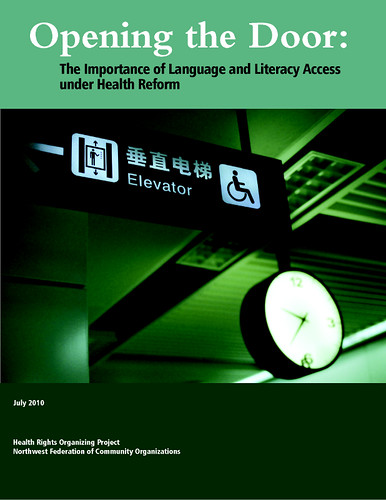The Importance of Language and Literacy Access under Health Reform
The primary goal of health care reform is to reduce uninsured rates and thereby ensure access to quality health care for the approximately 46.3 million currently uninsured. This population consists disproportionately of people of color, immigrants and low-income people.
One of the primary mechanisms for expanding coverage is the creation of state insurance “exchanges,” entities that will facilitate the purchase of insurance by individuals and small employers.
In setting the basic guidelines for the exchanges, the federal government should make coverage and services through the exchanges as accessible as possible to their intended beneficiaries. Specifically, attention must be paid to the needs of people of limited literacy and people with limited English proficiency. This report discusses some major areas of concern with regard to language and literacy access.
